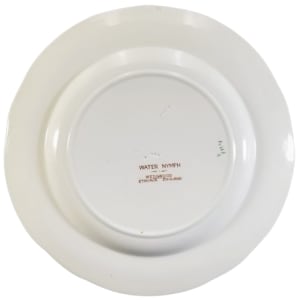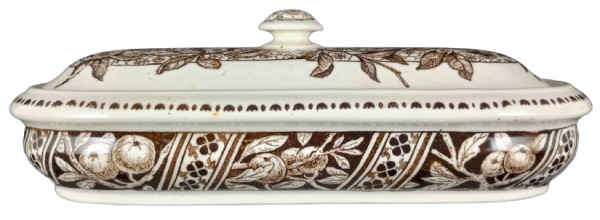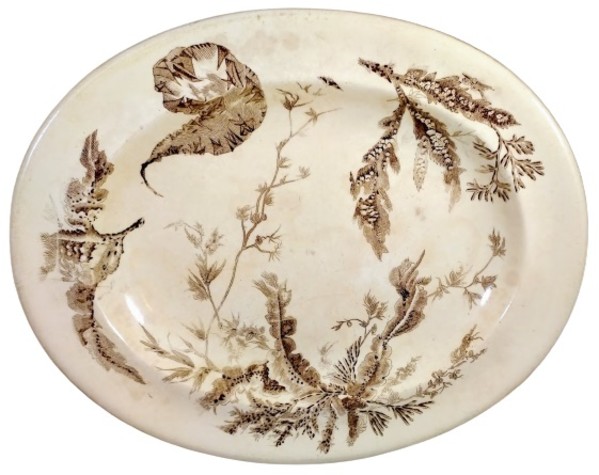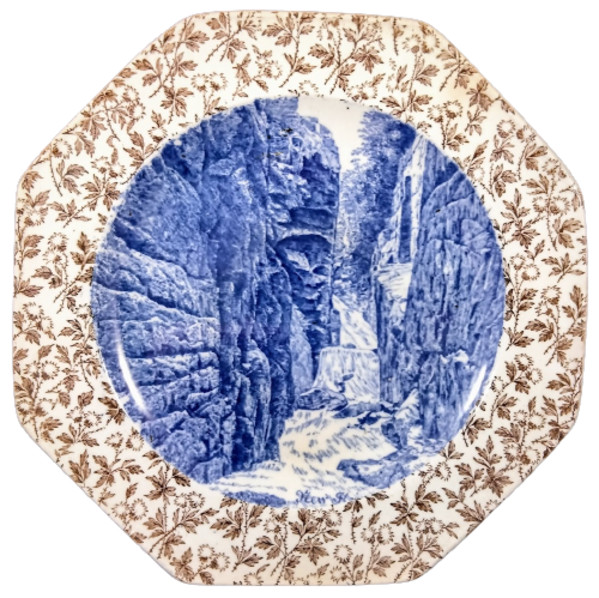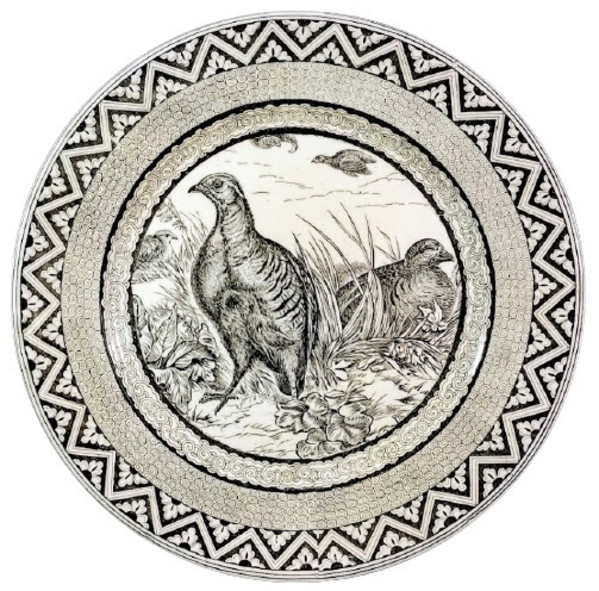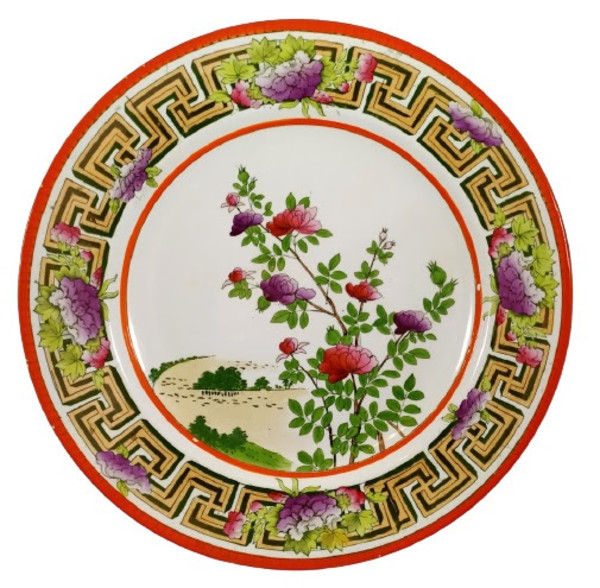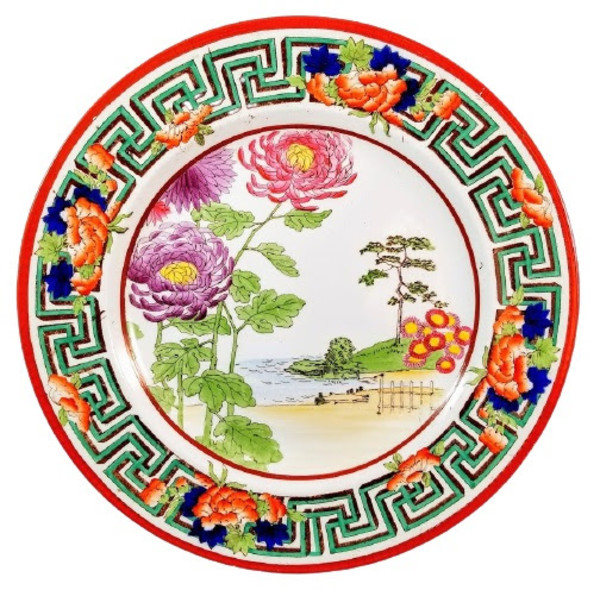- Josiah Wedgwood
- Water Nymph, 1875
- Earthenware
- 10.1 x 10.1 in (25.65 x 25.65 cm)
-
Not For Sale
Plate, 10.1 inches diameter. Brown transfer with polychrome clobbering. Impressed and printed maker's marks for Wedgwood. The painted pattern number "A4268" indicates Queensware dinnerware, not gilt, 1875-1932. The impressed date code indicates a manufacture date of 1903. The "Water Nymph" pattern was one of four pearlware plates printed and painted with botanical and floral patterns in a typical 19th-century style. The stylistic flowers, buds and leaves are decorated in lovely fall colors. The narrow border consists of a rope like feature with red-painted leaves tucked in at uneven intervals around the plate. It does not resemble the narrow, grassy water plant weed found throughout the world known by that name.
Josiah Wedgwood was born in Burslem, Staffordshire, on July 12, 1730, into a family with a long tradition as potters. At the age of nine, after the death of his father, he worked in his family's pottery. In 1759 he set up his own pottery works in Burslem. There he produced a highly durable cream-colored earthenware that so pleased Queen Charlotte that in 1762 she appointed him royal supplier of dinnerware. From the public sale of Queen's Ware, as it came to be known, Wedgwood was able, in 1768, to build near Stoke-on-Trent a village, which he named Etruria, and a second factory equipped with tools and ovens of his own design. At first only ornamental pottery was made in Etruria, but by 1773 Wedgwood had concentrated all his production facilities there. During his long career Wedgwood developed revolutionary ceramic materials, notably basalt and jasperware. After Wedgwood's death in Etruria on January 3, 1795, his descendants carried on the business, which still produces many of his designs.
- Subject Matter: Floral & Botanical
- Collections: British Transferware (1800-1930), Josiah Wedgwood

